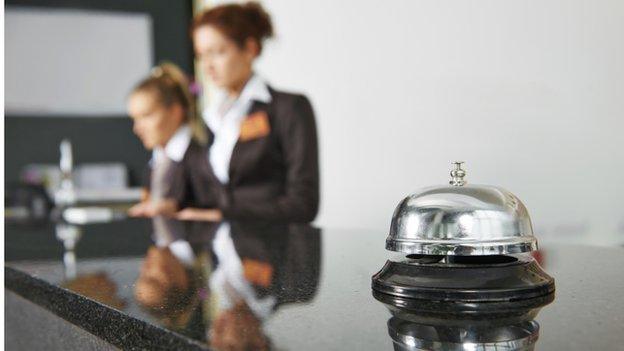Why are business rates causing concern?
- Published

The rateable value of Edinburgh Castle has risen 500%
Scottish businesses have voiced concerns about planned changes to their rates. From April, some could see a rise in the amount they pay, with the tourist and leisure industry expressing most concern. Why is this a problem now?

What are business rates?
Unlike domestic homeowners, Scotland's businesses don't pay council tax. Instead, they pay business rates.
The amount shops, offices, pubs, hotels, warehouses and factories pay is based on a "rateable value". This valuation of a property is broadly based on an analysis of what annual rental values would be.
A combination of the rateable value and the poundage rate make up what businesses pay.
There are a range of rate "relief" schemes that can change the amount a business actually pays.
Why are businesses concerned now?
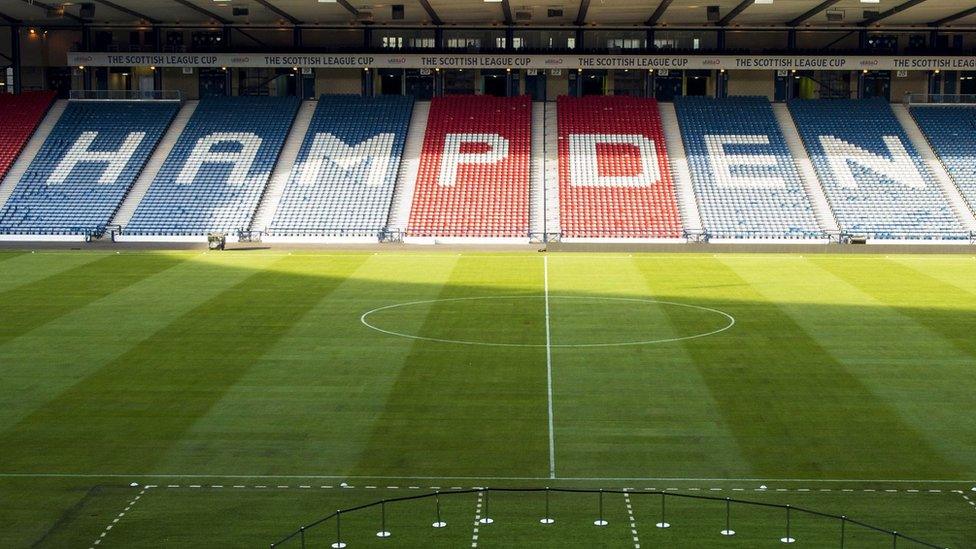
Hampden Stadium has seen its rateable value rise
The Scottish Assessors' Association, external, which sets the rateable value, has been carrying out a revaluation of properties, the first since 2010.
It is supposed to do this every five years but the 2015 revaluation was delayed by the Scottish government.
The newly-assessed rateable values will be introduced from 1 April and businesses are starting to work out what the new values will cost them.
For some, the rateable value has actually reduced. But others are voicing concern that large rises could threaten the viability of their business.


Why are some businesses having to pay more?
The valuations reflect the position at a moment in time and are frozen at that level until the next assessment.
It is possible that some sectors such as hotels and pubs were experiencing strong conditions in April 2015 when the current value was established but are now struggling.
In the north east of Scotland, the hospitality industry has taken a hit over the past couple of years as the oil industry on which it relies has struggled with falling prices and output.
On the other side of the coin, sectors such as large retailers in out-of-town shopping centres once had very high values. Tougher competition in this sector and the move to bargain retailers such as Lidl and Aldi may have had the effect of reducing the rateable value of these properties.
Why do some businesses think the rates are unfair?
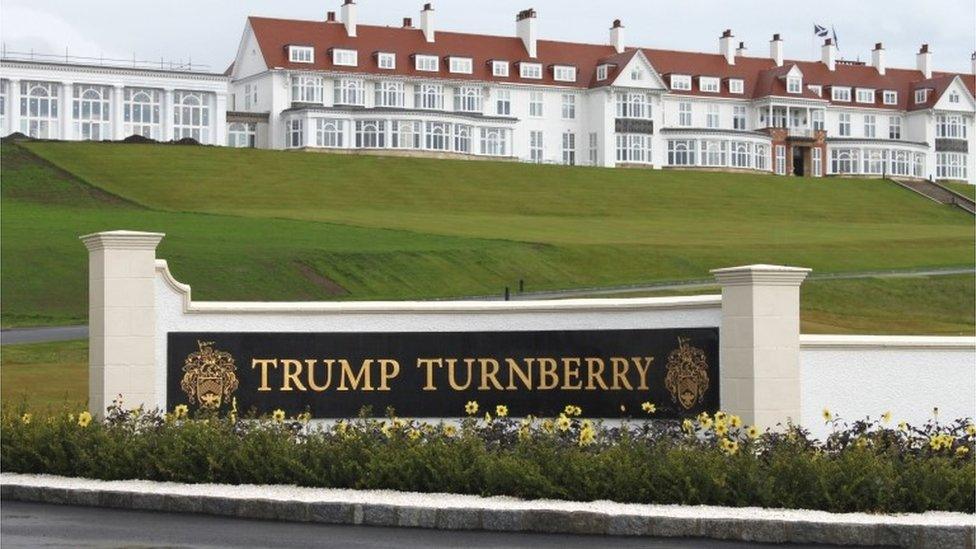
The rateable value of a business property reflects its general rental value, but not its profitability.
Two identical shops in the same street would probably pay the same rate even if one was extremely profitable and the other was having difficulty making ends meet.
Some businesses are also complaining that the value was assessed in April 2015 and areas such as Aberdeen and the north east have seen a considerable slump since then.
Are the Scottish government raising more money?
No. They are actually raising less because the threshold for paying the rates has been substantially raised, from £10,000 to £15,000.
They also lowered the rate poundage by 3.7%, meaning businesses pay a lower percentage of their rateable value. The rate is now 46.6p but some larger businesses pay a supplement.
In 2016-17, the non-domestic rates raised £2.768bn and this year it is projected to bring in £2.605bn.
So, in effect, Scottish businesses are paying the same amount but the burden is falling in a different way.
Are changes planned to the business rates system?
The Scottish government announced a review last year of the business rates, chaired by Ken Barclay, a former chairman of the Royal Bank of Scotland.
The review is expected to be completed by summer but would be too late to affect the latest revaluation.
What are the Scottish government saying?
Finance Secretary Derek Mackay said the Scottish government had announced a package of action worth £155m to reduce business rates as part of the budget.
He said half of businesses would pay no rates, 70% will pay either no or less rates than they do currently, and the total package of reliefs will increase to more than £600m.
Mr Mackay said: "The revaluation is conducted independently and local authorities retain the revenue raised."
He said individual business rate payers could appeal against their valuation if they felt it was incorrect.
What are the other parties saying?
The Conservatives said they had been "inundated with letters from businesses across Scotland who are facing huge increases in their rates".
They claimed some faced having to pay four times more than they did previously.
Ruth Davidson called on First Minister Nicola Sturgeon launch an urgent review into the rate increases.
She said: "The amounts that are being asked for are clearly unsustainable and if immediate action is not taken then we risk seeing a huge amount of damage done to our economy."
Scottish Liberal Democrat leader Willie Rennie said a "transitional scheme", phasing in the rises, would be the right thing to do.
What is happening in the rest of the UK?
A revaluation of business rates is also taking place in England and Wales. Northern Ireland underwent the process in 2015.
Like Scotland, business groups in England have expressed concerns, warning the UK government of high street store closures.
Conservative ministers insist that the system will be fairer and that three quarters of businesses' rates will either go down or stay the same.
Nevertheless, Chancellor Philip Hammond is being urged by business leaders to use his Budget next month to mitigate the impact of the changes due to come into force on 1 April.
- Published16 February 2017

- Published12 February 2017
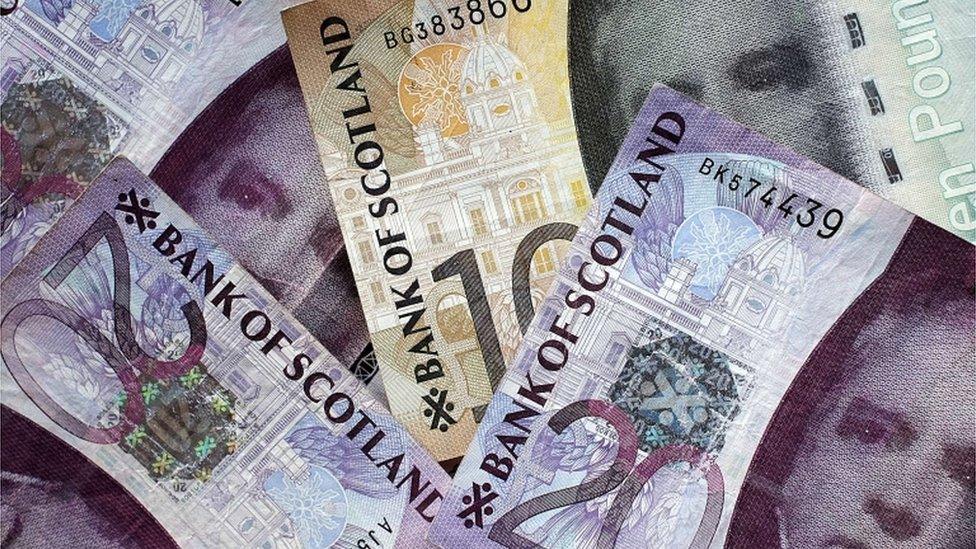
- Published18 March 2016
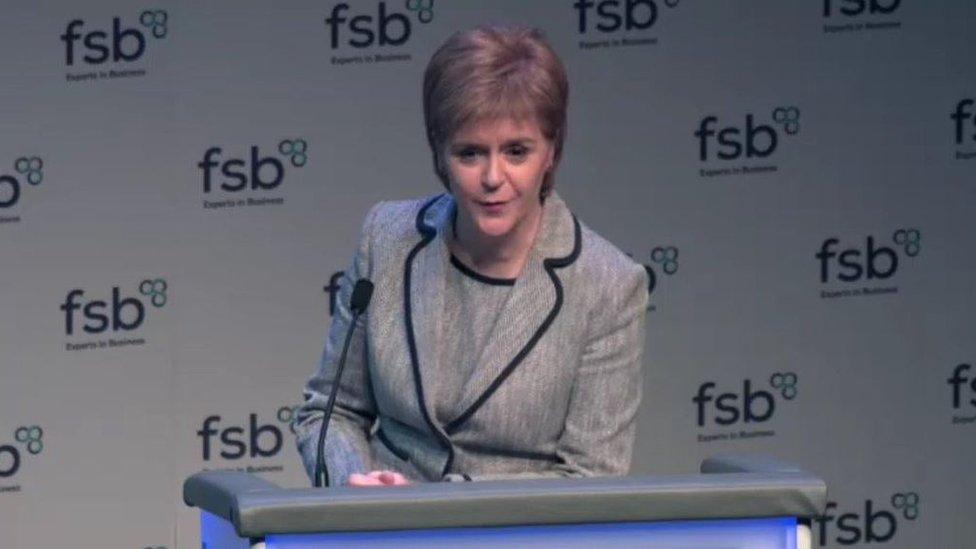
- Published29 June 2015
